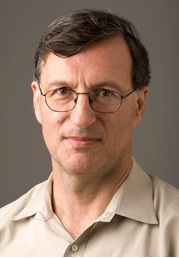 Steven Greenhouse has had a distinguished career as a journalist. Trained initially as an attorney, he served as a longtime correspondent for The New York Times. He is perhaps best known as the Times’s senior labor reporter and as the author of The Big Squeeze: Tough Times for the American Worker (Anchor, 2009). Upon announcing his recent decision to step down from his post at the Times, many readers lamented the loss of the nation’s most important reporter on the labor beat –a tribe that some feel has faced major challenges. Work in Progress is pleased to post this interview with Steven Greenhouse, with much gratitude. Read More
Steven Greenhouse has had a distinguished career as a journalist. Trained initially as an attorney, he served as a longtime correspondent for The New York Times. He is perhaps best known as the Times’s senior labor reporter and as the author of The Big Squeeze: Tough Times for the American Worker (Anchor, 2009). Upon announcing his recent decision to step down from his post at the Times, many readers lamented the loss of the nation’s most important reporter on the labor beat –a tribe that some feel has faced major challenges. Work in Progress is pleased to post this interview with Steven Greenhouse, with much gratitude. Read More
Interviews
White Collar Crime & Corporate Fraud—with a Touch of Pink
 I recently talked with my colleague, Associate Professor of Sociology at Washington State University, Dr. Jennifer Schwartz about her April 2013 American Sociological Review collaboration with Darrell Steffensmeier and Michael Roche entitled “Gender and Twenty-First-Century Corporate Crime: Female Involvement and the Gender Gap in Enron-Era Corporate Frauds.”
I recently talked with my colleague, Associate Professor of Sociology at Washington State University, Dr. Jennifer Schwartz about her April 2013 American Sociological Review collaboration with Darrell Steffensmeier and Michael Roche entitled “Gender and Twenty-First-Century Corporate Crime: Female Involvement and the Gender Gap in Enron-Era Corporate Frauds.”
The article is of particular interest to readers of this blog for its application of theories of work (e.g., homosocial reproduction, network theory, and theories of power at work) to explain the connection between gender and corporate malfeasance. This piece also tells us about gender differences in work styles and locations: women engage in less “big time” corporate fraud than do men, a fact that is NOT fully explained by their lower level corporate positions. The authors suggest male-dominated networks at the top of work organizations and informal barriers to women’s upward mobility may explain why men outpace women in corporate fraud.
“Gender Deviance” Revisited: An Interview with Daniel Schneider, Winner of the 2012 OOW Award for Best Paper by a Grad Student
Daniel Schneider received his PhD in Sociology and Social Policy from Princeton University in 2012. He is currently a Robert Wood Johnson Postdoctoral Scholar in Health Policy Research at UC-Berkeley/UCSF. Daniel’s paper, “Gender Deviance and Household Work: The Role of Occupation,” won the 2012 James D. Thompson Award from the Organizations, Occupations, and Work section of the American Sociological Association and was recently published in the American Journal of Sociology. The following is the text of an interview recently conducted with Daniel by Kate Kellogg, an Associate Professor of Organization Studies at MIT.
Kate Kellogg: What are your general research interests, and what led you to explore the specific question of gender deviance?
Daniel Schneider: My research is at the intersection of family and inequality. My work looks at how inequality structures the formation of families and how gender inequalities then play out within those families. So, for instance, some of my work has looked at how differentials in wealth by race and education shape differential entry into marriage. But, other research looks at how families then perpetuate inequality and serve as sites for unequal practices.
This work taps into that second vein, looking at how economic resources and engagement in the market economy matters differently for men and women in the household. More specifically, this project engages with an existing literature on how men’s and women’s relative economic resources shape housework time.
Kate Kellogg: Can you say a little bit about the behind-the-scenes’ trials and tribulations of your research process?
“Pride and Prejudice” Revisited: An Interview with Andras Tilcsik
Andras Tilcsik is a Ph.D. candidate in Organizational Behavior at Harvard University. His paper, “Pride and Prejudice: Employment Discrimination against Openly Gay Men in the United States” won the 2011 James D. Thompson Award from the Organizations, Occupations, and Work section of the American Sociological Association and was recently published in the American Journal of Sociology. The following (after the jump) is the text of an interview recently conducted with Andras by Rachel Gorab, a Ph.D. student in the sociology program at Northeastern University.